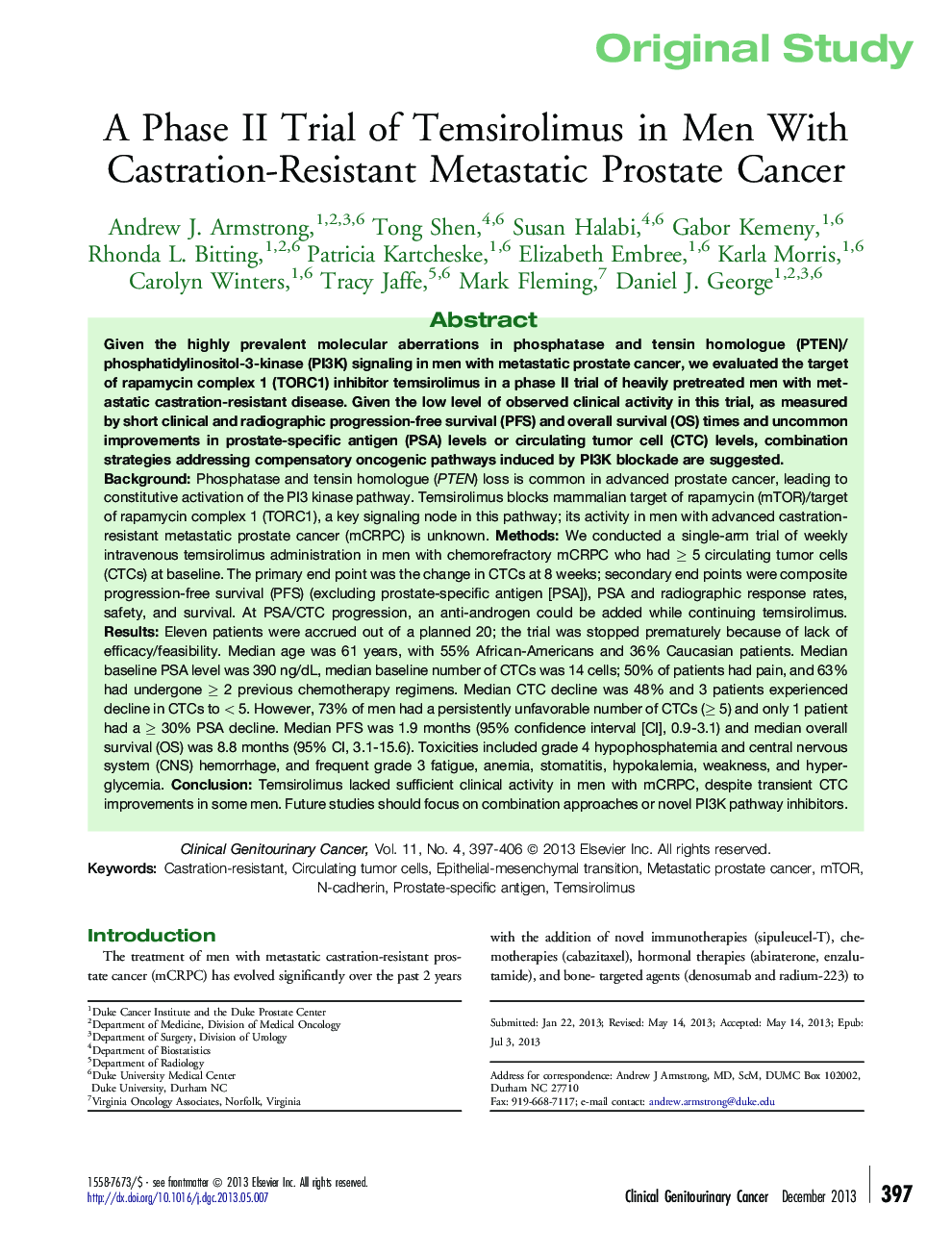| کد مقاله | کد نشریه | سال انتشار | مقاله انگلیسی | نسخه تمام متن |
|---|---|---|---|---|
| 2752285 | 1149553 | 2013 | 10 صفحه PDF | دانلود رایگان |

BackgroundPhosphatase and tensin homologue (PTEN) loss is common in advanced prostate cancer, leading to constitutive activation of the PI3 kinase pathway. Temsirolimus blocks mammalian target of rapamycin (mTOR)/target of rapamycin complex 1 (TORC1), a key signaling node in this pathway; its activity in men with advanced castration-resistant metastatic prostate cancer (mCRPC) is unknown.MethodsWe conducted a single-arm trial of weekly intravenous temsirolimus administration in men with chemorefractory mCRPC who had ≥ 5 circulating tumor cells (CTCs) at baseline. The primary end point was the change in CTCs at 8 weeks; secondary end points were composite progression-free survival (PFS) (excluding prostate-specific antigen [PSA]), PSA and radiographic response rates, safety, and survival. At PSA/CTC progression, an anti-androgen could be added while continuing temsirolimus.ResultsEleven patients were accrued out of a planned 20; the trial was stopped prematurely because of lack of efficacy/feasibility. Median age was 61 years, with 55% African-Americans and 36% Caucasian patients. Median baseline PSA level was 390 ng/dL, median baseline number of CTCs was 14 cells; 50% of patients had pain, and 63% had undergone ≥ 2 previous chemotherapy regimens. Median CTC decline was 48% and 3 patients experienced decline in CTCs to < 5. However, 73% of men had a persistently unfavorable number of CTCs (≥ 5) and only 1 patient had a ≥ 30% PSA decline. Median PFS was 1.9 months (95% confidence interval [CI], 0.9-3.1) and median overall survival (OS) was 8.8 months (95% CI, 3.1-15.6). Toxicities included grade 4 hypophosphatemia and central nervous system (CNS) hemorrhage, and frequent grade 3 fatigue, anemia, stomatitis, hypokalemia, weakness, and hyperglycemia.ConclusionTemsirolimus lacked sufficient clinical activity in men with mCRPC, despite transient CTC improvements in some men. Future studies should focus on combination approaches or novel PI3K pathway inhibitors.
Journal: Clinical Genitourinary Cancer - Volume 11, Issue 4, December 2013, Pages 397–406